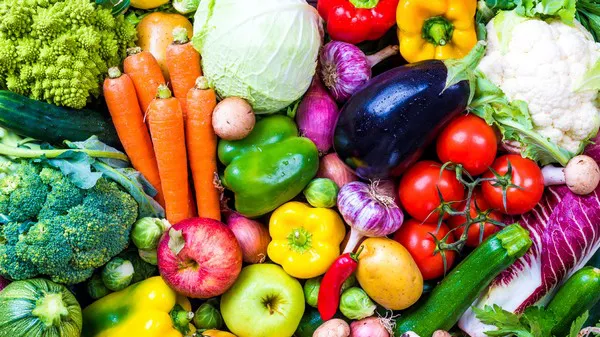Gaining weight in a healthy and balanced manner is a goal that many individuals strive for, whether due to medical reasons or personal preferences. While the primary focus often centers on increasing calorie intake, the role of vitamins in supporting weight gain should not be overlooked. In this article, we will delve into the vitamins that play a crucial role in promoting healthy weight gain, their mechanisms, sources, and how they contribute to overall well-being. By understanding the relationship between vitamins and weight gain, you can embark on your journey with the necessary knowledge to make informed dietary choices.
The Role of Vitamins in Weight Gain
1. Beyond Calories
While consuming an excess of calories is often associated with weight gain, vitamins are essential co-factors that facilitate numerous metabolic processes within the body. These processes influence how nutrients are utilized, stored, and converted into energy.
2. Nutrient Absorption
Vitamins contribute to nutrient absorption, which directly impacts weight gain. Proper absorption ensures that essential nutrients are available to support growth, muscle development, and overall health.
Vitamin D: Supporting Bone Health and Muscle Mass
1. Importance of Vitamin D
Vitamin D is crucial for bone health and calcium absorption, both of which are essential for building and maintaining strong bones and supporting muscle development.
2. Sources of Vitamin D
Vitamin D is synthesized by the body when exposed to sunlight. It can also be obtained through dietary sources like fatty fish, fortified dairy products, and supplements.
See Also: Where Do We Get Vitamin D: Things You Need to Know
Vitamin B Complex: Boosting Energy and Metabolism
1. B Vitamins and Energy Production
The B vitamins, including B1 (thiamine), B2 (riboflavin), B3 (niacin), B5 (pantothenic acid), B6 (pyridoxine), B7 (biotin), B9 (folate), and B12 (cobalamin), play a crucial role in energy metabolism. They convert carbohydrates, fats, and proteins into energy needed for physical activities and growth.
2. Sources of B Vitamins
B vitamins are found in a variety of foods, including whole grains, lean meats, poultry, eggs, legumes, and leafy greens. A balanced diet rich in these sources can help ensure adequate intake.
See Also: Why Are B Vitamins Called B Vitamins: What You Want to Know
Vitamin A: Supporting Tissue Growth
1. Cellular Health and Growth
Vitamin A is essential for the growth and maintenance of cells, tissues, and organs. It supports healthy skin, vision, and immune function.
2. Sources of Vitamin A
Vitamin A is found in foods such as liver, dairy products, sweet potatoes, carrots, spinach, and other colorful fruits and vegetables.
See Also: 7 Vegetables Rich in Vitamin A
Vitamin E: Protecting Muscle Cells
1. Antioxidant Properties
Vitamin E is an antioxidant that helps protect cells from oxidative damage. It can prevent the breakdown of muscle cells and support muscle growth.
2. Sources of Vitamin E
Nuts, seeds, vegetable oils, spinach, and other leafy greens are good sources of vitamin E. Including these foods in your diet can contribute to your vitamin E intake.
See Also: Why Vitamin E Matters: 5 Health Benefits
Vitamin C: Enhancing Collagen Production
1. Collagen and Tissue Growth
Vitamin C is essential for the production of collagen, a protein that supports the growth and repair of tissues, including muscles.
2. Sources of Vitamin C
Citrus fruits, strawberries, bell peppers, broccoli, and other fruits and vegetables are rich in vitamin C. Incorporating these foods can help you meet your vitamin C needs.
See Also: 6 Fruits With The Highest Vitamin C Content
Considerations and Dosage
1. Balance is Key
While vitamins play a role in weight gain, it’s essential to maintain a balanced diet that includes a variety of nutrients. Relying solely on vitamins for weight gain is not recommended.
2. Consultation with Professionals
Before making significant dietary changes or introducing vitamin supplements, it’s advisable to consult with a healthcare professional or registered dietitian. They can provide personalized recommendations based on your individual needs and health status.
Conclusion
In conclusion, vitamins play a vital role in promoting healthy weight gain by supporting energy metabolism, tissue growth, and overall well-being. While vitamins are important, they should be part of a balanced diet that includes a variety of nutrients from whole foods. Incorporating foods rich in vitamins D, B complex, A, E, and C can contribute to your weight gain journey, while also providing numerous other health benefits. Remember that individual nutritional needs vary, and seeking guidance from healthcare professionals can help ensure that your approach to gaining weight is safe, effective, and aligned with your overall health goals.


